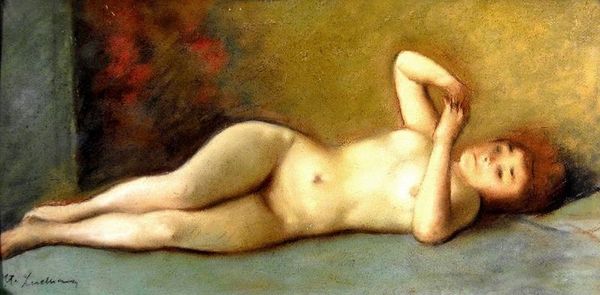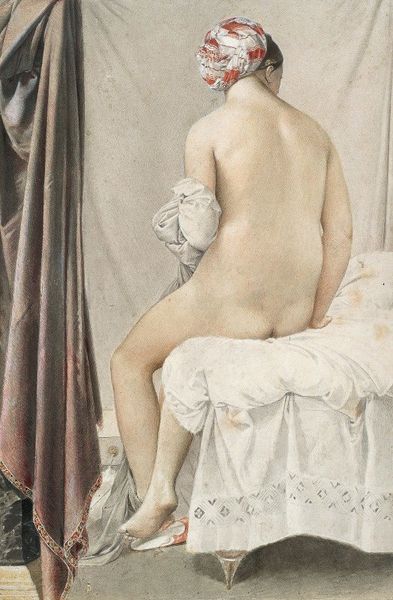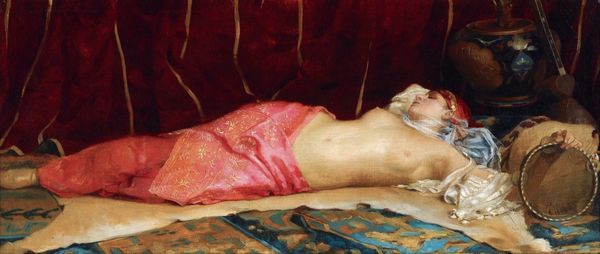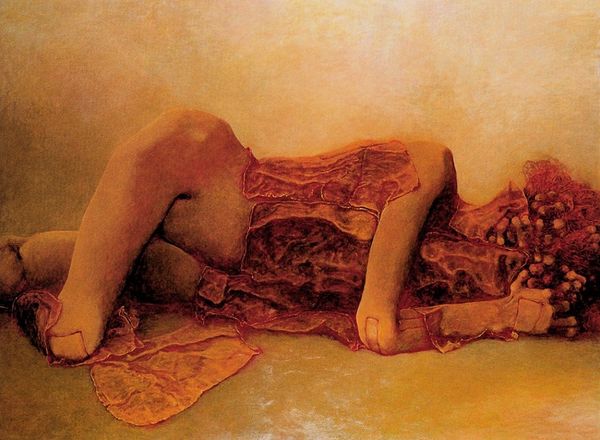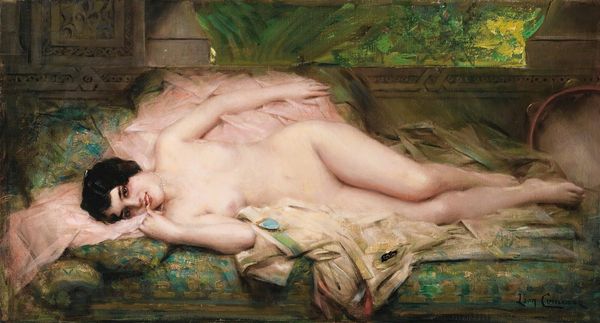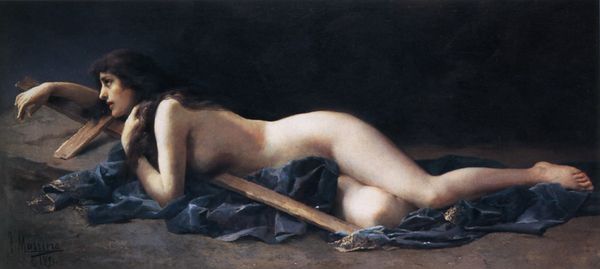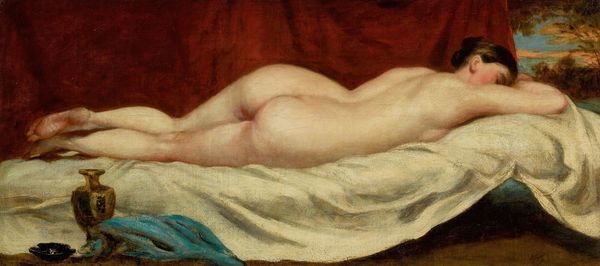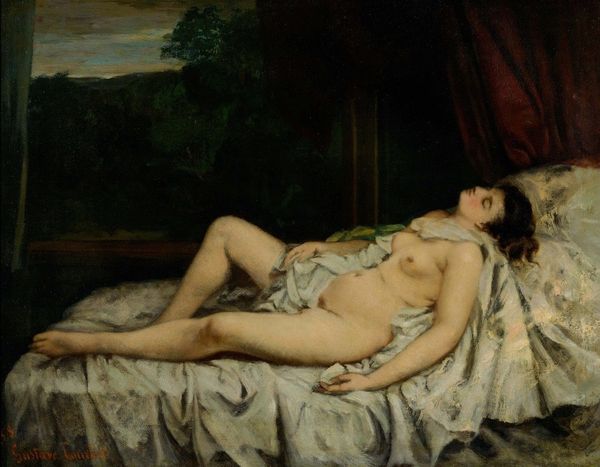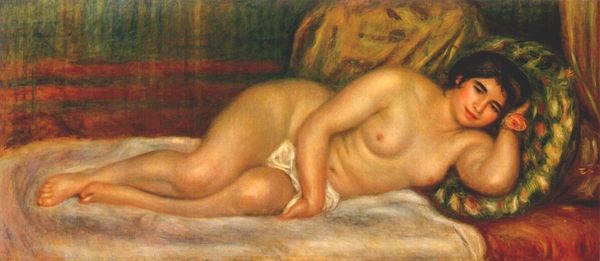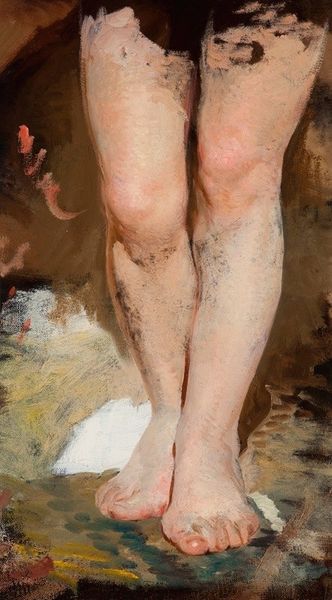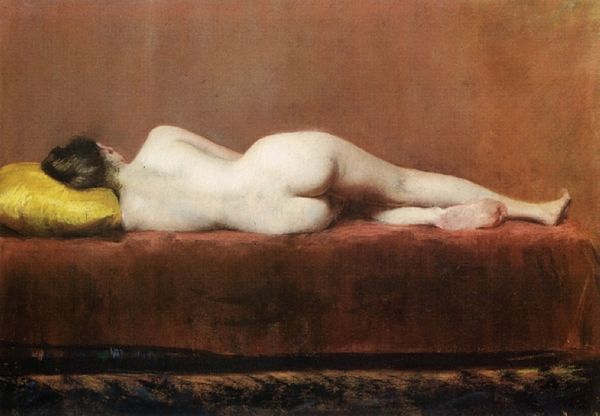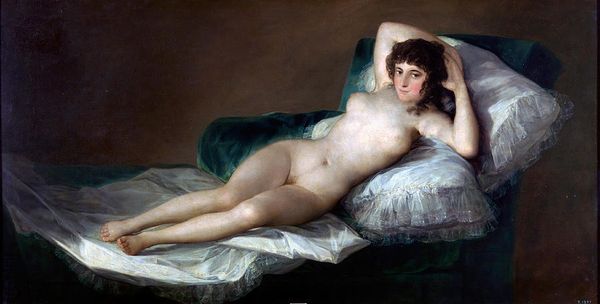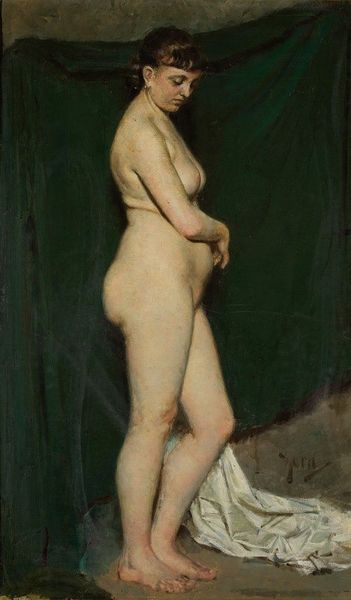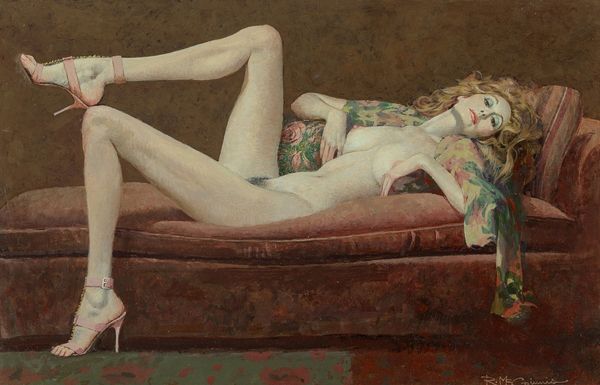
painting, oil-paint
#
painting
#
impressionism
#
oil-paint
#
figuration
#
oil painting
#
female-nude
#
human
#
painting painterly
#
academic-art
#
nude
Copyright: Public domain
Curator: This is "Reclining Nude," an oil painting by Frédéric Bazille. It's a compelling, albeit perhaps unfinished, example of the academic style blending into early impressionistic light. Editor: Wow, talk about languid! She's completely surrendered to the moment, a study in soft flesh tones and dappled light. I find a certain vulnerability here that draws me in. Curator: Indeed. Bazille's choice of pose evokes a historical visual trope--the reclining nude--but it’s as though he’s stripping away the artifice, looking for something authentic in her repose. It lacks some of the idealization typical of the academic tradition, doesn’t it? Editor: Absolutely! It feels less about the idea of 'woman' and more about this specific woman and her immediate comfort, or perhaps discomfort? I can’t decide! The drapery both conceals and reveals, creating this really intimate dance. Curator: Notice how the darker background and foreground push our gaze towards the central figure, highlighting her pallor, yet drawing also one's eye toward these patterns--roses?--scattered along the drapery as well. We have been trained, from antiquity forward, to decode visual nudes as symbols, allegories, representations of desire or feminine mystery. I see the echoes of such symbolization here. What do you think about its overall visual weight? Editor: You’re so right, that background could just swallow her whole, were it not for the scattered lighting across the scene. I am captivated by the idea of subverted expectations here. Curator: It challenges the way the female form has been presented in art for centuries. She's neither idealized nor objectified in the same way, is she? Editor: No, instead, it almost feels like intruding upon a private moment. A momentary lapse in self-awareness? That vulnerability I spoke of... Curator: Precisely. It marks an interesting intersection of tradition and the emerging impressionistic drive to capture the fleeting moment and unvarnished truth. It prompts a really important consideration: what's real and what is performed, with this historical kind of representation of a person? Editor: I'm leaving here thinking a great deal about both tradition and personal introspection; in the end, for me, that really hits at the very soul of what art can achieve.
Comments
No comments
Be the first to comment and join the conversation on the ultimate creative platform.
